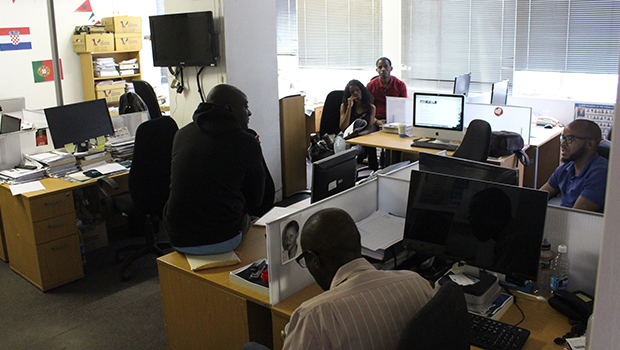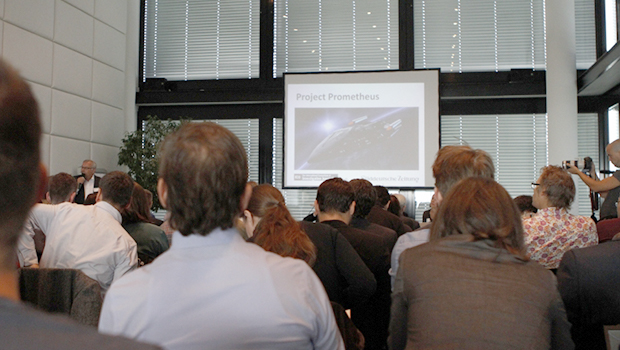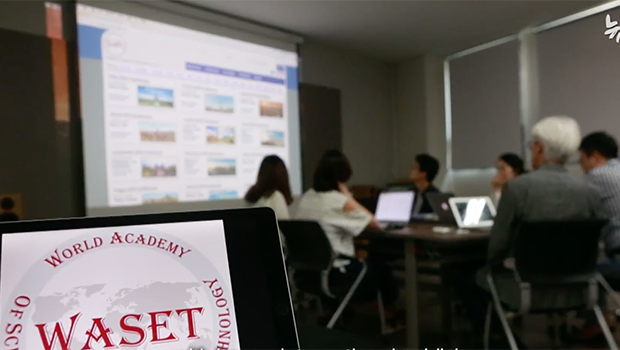A Namibian lawyer filed a libel suit against the country’s largest daily newspaper over Panama Papers-related stories that linked him to companies used by an alleged Mafia kingpin and others.
Henner Diekmann, who specializes in foreign investments in Namibia, alleges that two stories published in 2016 and 2017 as part of The Namibian’s coverage of the award-winning Panama Papers investigation libelled him.
The stories resulted from reporting and from data unearthed as part of the International Consortium of Investigative Journalists’ Panama Papers investigation.
Diekmann’s lawsuit names the publisher of The Namibian, Free Press of Namibia (Pty) Ltd, and editors and reporters Tangeni Amupadhi, Shinovene Immanuel, Tileni Mongudhi and Ndanki Kahiurika as defendants. Immanuel is a member of ICIJ.
Potentially, this will then be the first case that will serve in the Namibian Courts to attempt to broaden the defense available on defamation cases
Amupadhi, The Namibian’s editor, told ICIJ: “We believe this is an attempt to intimidate and stop us and the rest of the news media from writing about people, who clearly have a lot of resources to keep their activities secrets.
“We have followed the best journalistic practices and standards when publishing these articles. We stand by our reporting.”
The Sicilian Mafia, known as La Cosa Nostra, used Namibia as a port of call for cocaine trafficking throughout the 1990s and early 2000s, according to media reports.
The Namibian revealed that alleged Mafia kingpin Vito Palazzolo, also known as Robert von Palace Kolbatchenko, held up to 14 bank accounts with millions of dollars in Namibia. Palazzolo was arrested in Bangkok in 2012 on charges relating to his association with the Mafia, which he denied. In December 2013, he was extradited to Italy where he remains in jail in Milan. He previously served a three-year jail sentence for money laundering.
The Namibian reported that Palazzolo and his family owned or used local companies involved in diamond mining and real estate, including one company in which the son of Namibia’s founding president was a shareholder.
In May 2016, using emails and documents from the Panama Papers investigation and, separately, communications obtained between the governments of Italy and Namibia, The Namibian expanded on its reporting.
Diekmann was the director of a company in the Seychelles linked through another director in that company to Palazzolo, The Namibian reported. The newspaper stated that a Hong Kong entity named H. Diekmann Trust was a shareholder in the same company.

According to The Namibian, Diekmann was included in email correspondence about another Seychelles company alongside “Robert von Palace,” the name used to identify the Italian in the Panama Papers documents.
Diekmann also was a co-director of another company alongside Palazzolo’s son, The Namibian reported.
The Namibian stated that it had witnessed correspondence between local government officials and investigators in Italy about Diekmann’s role as the director of a local company, Kombsberg Farming, which reportedly held the majority of Palazzolo’s property in Namibia.
“Diekmann would seem to be the attorney of choice for individuals investing in companies connected to…Palazzolo,” The Namibian reported.
Diekmann denies wrongdoing. He declined to answer questions sent by ICIJ but has previously told The Namibian he was simply a lawyer representing clients.
Diekmann also rejected the newspaper’s defense that it has the duty to publish information in the public interest.
Amupadhi said to lose the case would be “a killer” for his paper, as the defeat could come with legal costs five-times greater than the $20,000 in damages sought.
The lawyer for the newspaper said he believes that Diekmann’s claim could be an important test of Namibia’s media freedom, protected under the country’s constitution.
“Potentially, this will then be the first case that will serve in the Namibian Courts to attempt to broaden the defense available on defamation cases,” the newspaper’s lawyer Norman Tjombe wrote in an email shared with ICIJ.
Namibia is widely seen as one of Africa’s media success stories. Global media freedom watchdog Reporters without Borders recently ranked it second only to Ghana in its annual press freedom index for Africa.
But the fact that Namibia has not experienced violence against reporters or overtly repressive legislation of the kind adopted in other African countries “does not mean that Namibian journalists and media do not face difficulties or challenges,” said Arnaud Froger, head of the Reporters without Borders Africa desk.
Namibia’s intelligence service recently sought – unsuccessfully – to prevent a newspaper from publishing an unrelated story about alleged corruption, Froger said. “The very fact that a media outlet was sued by the intelligence services of its own country tells a lot about the difficulty for journalists to deal with corruption issues.”
“Access to information should be guaranteed in a law, and journalists should be protected from abusive defamation lawsuits,” he added.
Amupadhi said Namibia’s position as Africa’s freest media environment “was always a flawed assessment” in the eyes of many journalists practicing in the country.
“As the saying goes, all that glitters is not gold,” he said. “We face several challenges, including the lack of an access to information law in a political and economic governance environment which is substantially non-transparent and unaccountable.”



